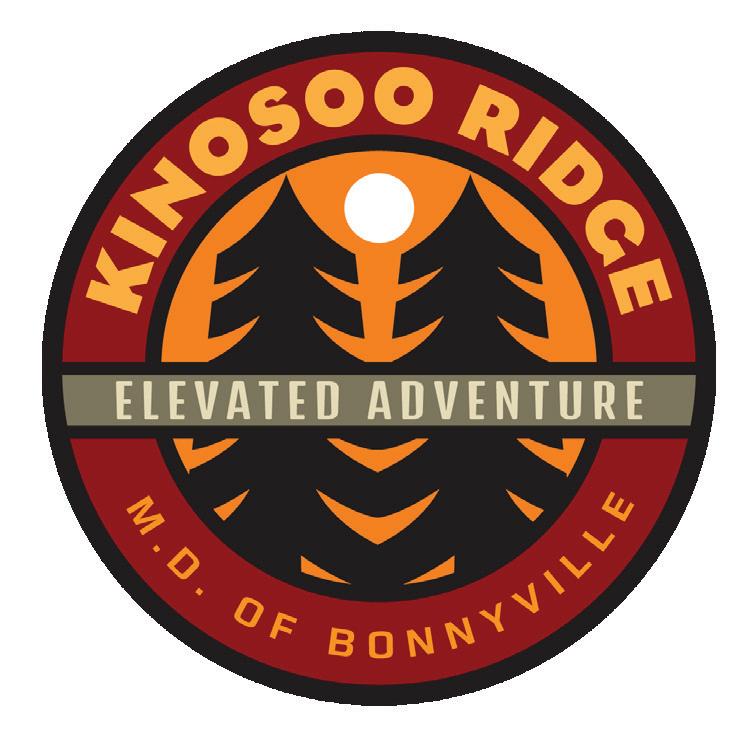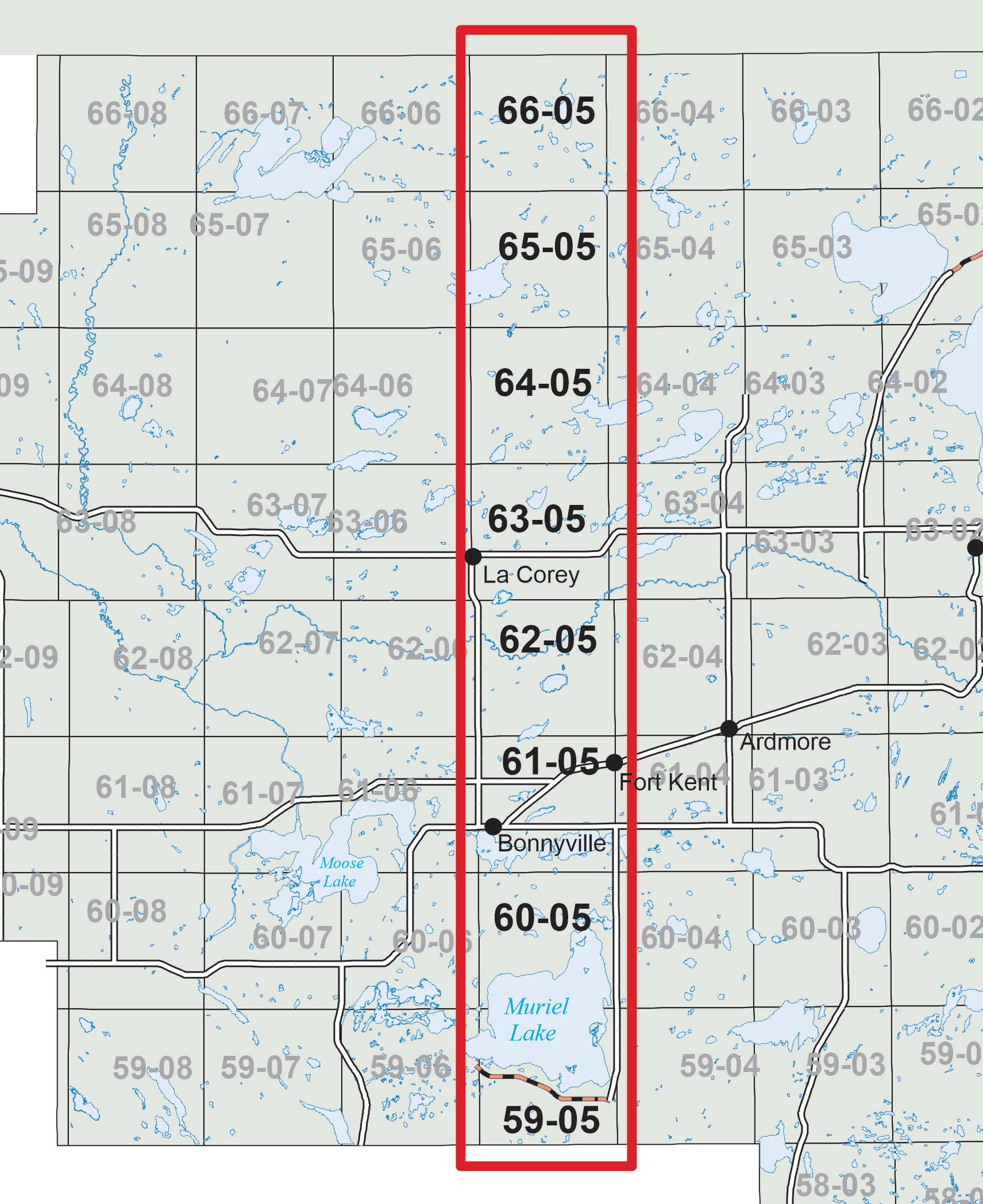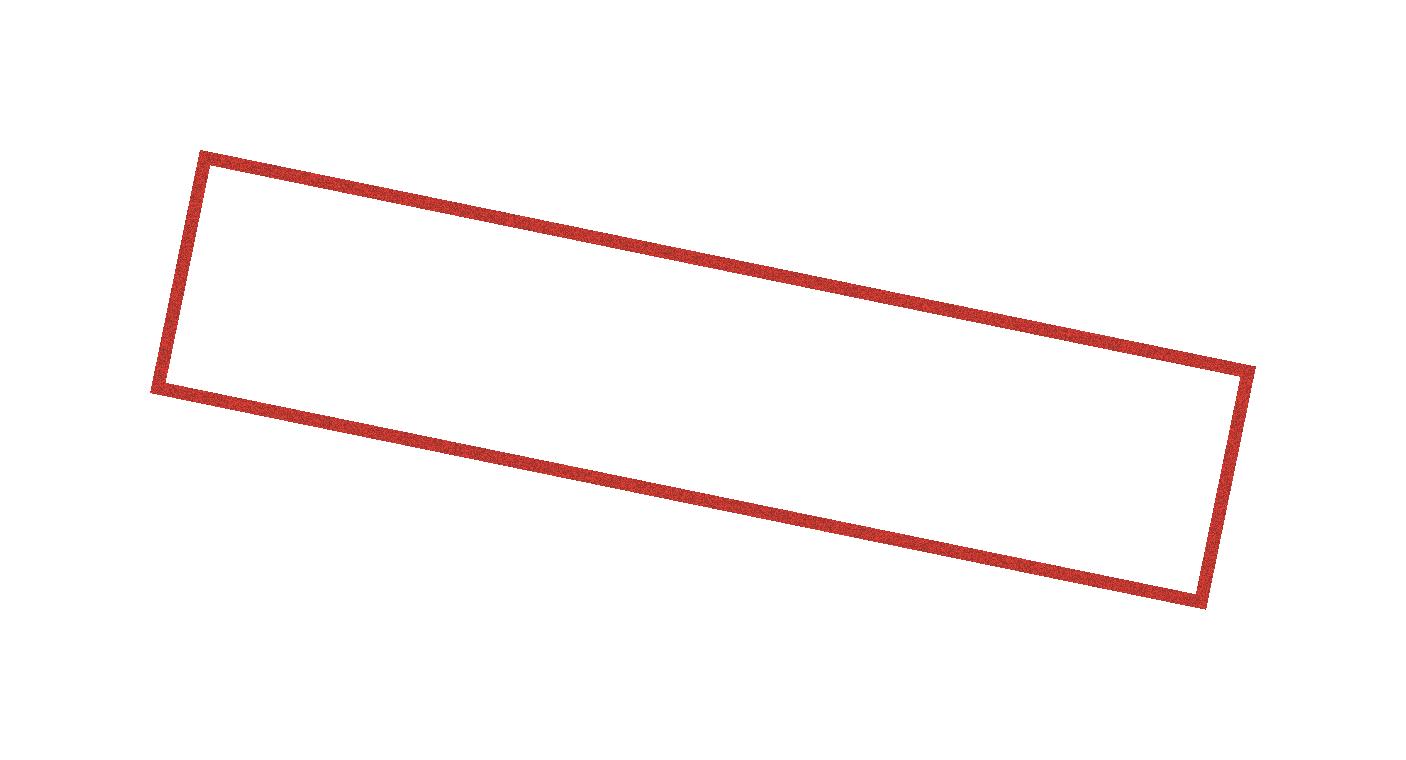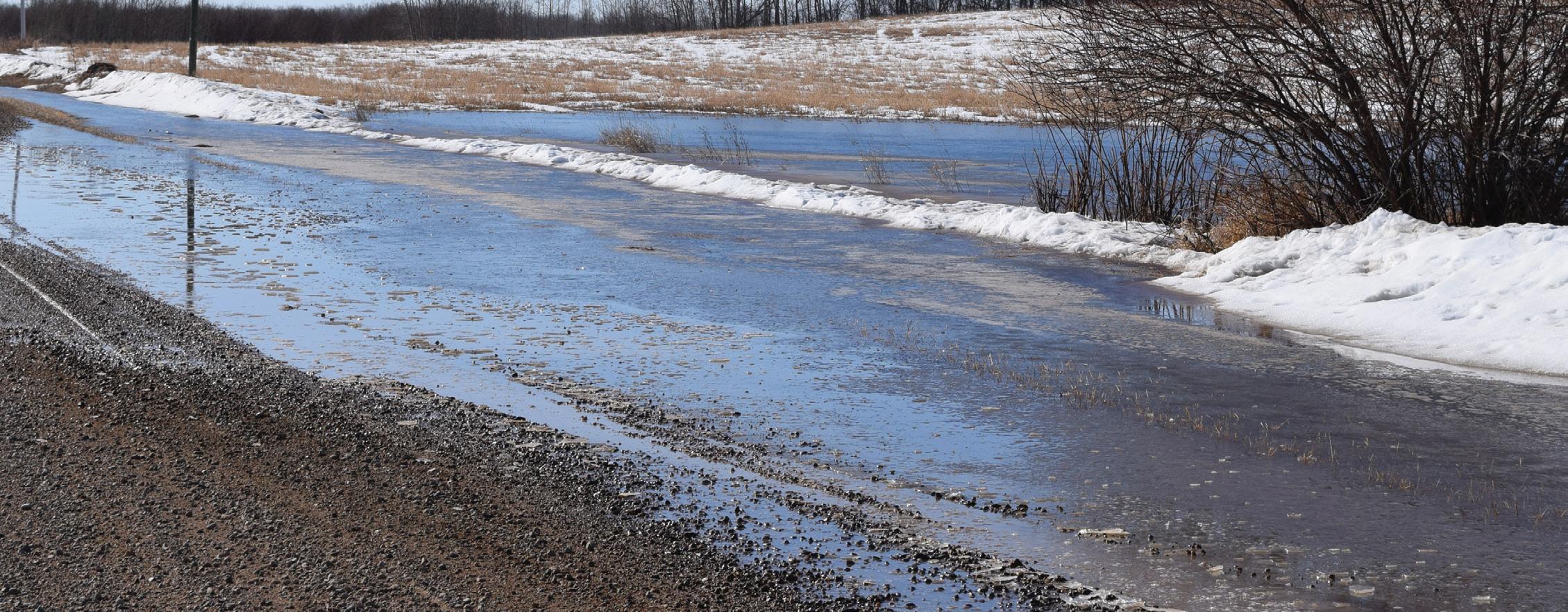
3 minute read
ROAD BANS
At the Regular Meeting of Council on March 14, 2023, M.D. Council passed Bylaw No. 1840, which establishes rules, regulations, and fines for commercial vehicle weight restrictions on M.D. roads and the process for acquiring a Road Use Agreement.
This bylaw replaces Bylaw No. 1543 and mandates the use of Road Use Agreements for all commercial vehicles using M.D. roads while under restrictions (as defined in the Bylaw), including agricultural vehicles licensed and registered for highway use, transporting agricultural equipment and produce (including animals and crops). Previously, agricultural vehicles were exempt. Farm Equipment, as defined in the bylaw, (also known as implements of husbandry), which do NOT require a license plate to use public roadways, remain exempt.
These Road Use Agreements help protect the integrity of M.D. roads, especially during spring thaw when the roads are most vulnerable to damage.
The following M.D. roads have restrictions year-round:
• Township Road 610 (Range Road 460 to Highway 657) – 75%
• Rge. Rd. 474 (Hwy. 660 to Hwy. 28) – 50%
• Twp. Rd. 624 (between Hwy. 881 and Rge. Rd. 4100) –75%
• Twp. Rd. 644 (between Rge. Rd. 473 and Rge. Rd. 475) – 50%
• Rge. Rd. 470 (Hwy. 55 to Twp. Rd. 630) – 75%
• Twp. Rd. 622 (Dupre Road) (between Rge. Rd. 470 and Rge. Rd. 473) – 50%
• Rge. Rd. 455 (from town limits to M.D. Public Works Shop) – 75%
• Twp. Rd. 604 (Hwy. 657 to Rge. Rd. 445) – 75%
• Hamlet of La Corey – 50%
• Rge. Rd. 420 (from Rge. Rd. 423 intersection to 65321 RGE RD 420 intersection) – 75%
• Twp 630 from Rge Rd 411 to the Saskatchewan border – 75%
All commercial and agricultural haulers are encouraged to review Bylaw No. 1840 for full specifications on road use in the M.D.
All commercial, industry, and agricultural partners that wish to utilize M.D. roads currently under restriction will be required to submit a request for a Road Use Agreement, which, if approved, will outline the terms of road use within the municipality. The M.D. reserves the right to specify routes of travel designated for operations based on the M.D.’s opinion of suitable roads. The Road Use Agreement will also bind the Agreement holder to be responsible for the repairs of any roadway(s) damaged in the process of carrying out the Agreement holder’s operations.
Please note — this does not constitute an open invitation to utilize any M.D. roadway. The M.D. will work closely with organizations to determine the optimum route(s), while protecting municipal infrastructure.
This bylaw does not extend to any roads under the jurisdiction of the Province of Alberta, within M.D. boundaries. Primary and secondary highways will still be subject to provincial road use regulations.
The Municipal District of Bonnyville No. 87, being the road authority, may at its sole discretion alter haul routes assigned at any given time due to road deterioration.
For more information on Road Use Agreements, call 780826-3951, or visit bit.ly/MDRoadBans
“TO FLUSH, OR NOT TO FLUSH?”.
IT’S BEEN FIVE YEARS SINCE WE ASKED M.D. RESIDENTS
In an article by that name in the April 2018 edition of Rural Review, we talked about what people should and shouldn’t be flushing and the effects it can have on hamlet sewer systems and rural septic systems and fields.

In those five years, residents have taken the message to heart. Our M.D. Utilities Operators can see the difference, and now, so can you.
Above, you’ll see comparison photos from the Ardmore lift station, where residential sewage is treated. The original photo from 2018 is on the left, while the photo on the right was taken in March 2023.
To keep the message flowing, here are a few things you shouldn’t flush down your toilets, no matter if you’re on a municipal-run sewage system or a septic tank/field:
• Cooking fats
• Dairy products
• Dirt from washing produce
• Flushable wipes
• Pasta
• Rice
• Egg shells
• Coffee grounds
• Feminine hygiene products (including plastic applicators)
• Medications
Toilets are meant to handle human waste, not be a flushable trash can. All of the items listed above can create blockages in your plumbing, which are made up of bends and sweeps.

Another step is to use a product like SeptoBak, which can be found at local hardware stores. This flushable treatment can be flushed or poured down drains and helps keep things moving. It also helps create a healthy environment for the good bacteria that helps break down waste.
Have questions? Give the M.D.’s Utilities Department a call at 780-826-3951.










